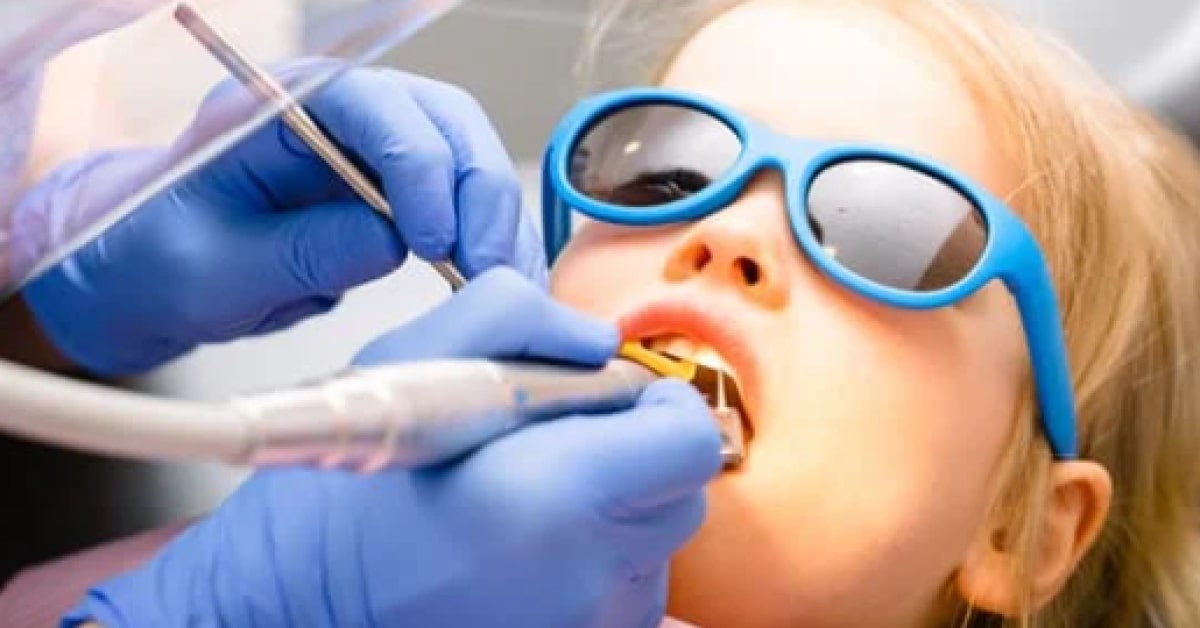Blog
March 01, 2023 • 15 mins readDiabetes and the Impacts on Oral Health
Learn how to protect your teeth and gums from the diabetes, also exploring the impacts of diabetes on oral health, including the increased risk of gum disease, dry mouth, and tooth decay.
Author
Danielle Duncan

In this Article
Like many other chronic illnesses and diseases, Diabetes is a disease that can have a huge impact on whole body health- including oral health. Unfortunately, one of the many challenges facing those who live with diabetes is an increased risk of oral health problems that can in turn lead to further decline in their overall health.
The biggest risk to oral health caused by diabetes is high blood sugar. If left unchecked, high blood sugar raises the risk of developing oral health problems. But, what causes this?
Unmanaged Diabetes can weaken white blood cells which are the body’s main line of defense against bacterial infections that can be found in the mouth. Fortunately, studies have shown that regulating blood sugar levels can help to lower the overall risk of organ damage, and also protect against the development of oral health decline.
What Oral Health Problems are Seen in Patients with Diabetes?
- Dry Mouth
Unmanaged diabetes can lead to a decrease in saliva production, resulting in a dry mouth. If dry mouth is left unchecked, it can lead to soreness, infections, ulcers, and even tooth decay.
- Poor Healing of Oral Tissue
Overall healing in people with unmanaged diabetes is much lower than in those with managed or no diabetes. This can lead to prolonged healing after dental procedures.
- Gum Inflammation (Gingivitis or Periodontitis)
White blood cell weakening isn’t the only problem seen in patients with diabetes. Unmanaged diabetes can also lead to the thickening of blood vessels. With thicker blood vessels, the flow of nutrients throughout the body and the removal of waste products from the body is decreased. This means that the body can lose its ability to adequately fight infections which can lead to bacterial infections and inflamed gums.
- Burning Mouth and/or Tongue
A condition caused by the presence of thrush (below).
- Thrush
People who have unmanaged diabetes and who are frequently prescribed and take antibiotics to fight infections are prone to developing fungal infections like thrush in their mouth.
Diabetes patients who smoke are at an even higher risk (up to 20 times) more likely to develop thrush than non-smokers, so it is important to abstain from or quit smoking as soon as possible to help mitigate the risk of developing further oral complications.
How Do Patients and Providers Prevent Oral Health Problems in Patients with Diabetes?
Due to their predisposition to many oral health complications, it is important for diabetes patients to manage their condition and follow good oral hygiene practices. Most dental professionals will have experience in treating diabetes patients for any oral health complications and can help their patients by ensuring that they follow a few key steps in maintaining their oral health:
- Keeping blood sugar as close to normal as possible. At each dental visit, it is imperative that the dental professional knows the status of the disease. Maintaining a thorough health history can help to improve the overall care plan and will help when billing medical insurance for dental treatments for diabetes.
- Seeing any primary care doctors prior to appointments with a dentist to treat periodontal disease. Both dentists and primary care doctors will work together to help the overall health of the patient and will usually communicate to ensure the safe treatment of any oral problems caused by diabetes.
- Maintaining a thorough record of any medications. This step is incredibly important for both the patient and the dental practice. Keeping updated health and medication records not only helps to bill medical insurance to offset out-of-pocket costs, it can help to guide treatment.
- If blood sugar isn’t well managed or goes untreated, it is important to get these levels under control before undergoing any extensive dental treatments. However, if there is an emergency such as an acute infection like an abscess, it should be treated right away to prevent systemic infection.
- Keep up with semi-annual checkups with your dentist. These dental cleanings can help to prevent catastrophic complications if oral health is left unchecked.
- Brush after each meal with a soft-bristled toothbrush and floss at least once per day to remove buildup.
- Remove and clean dentures daily to reduce the risk of thrush.
There are some misconceptions about oral health issues and diabetes, what are they?
A greater risk of cavities in people with diabetes:
The thought on this is that high glucose levels in the saliva of people with unmanaged diabetes lead bacteria to thrive. In this scenario, high glucose levels can lead to the development of caries (tooth decay/cavities) and gum disease. The main misconception is that some dentists may feel that those with diabetes know more about what to eat and how to monitor their sugar intake, but this may not be true in those with unmanaged diabetes.
The fact of this is, if a patient’s diabetes is well managed, they have no more tooth decay or perio than those without diabetes. That is why practicing appropriate oral hygiene and blood sugar regulation is the best possible protection against cavities.
Tooth loss is more frequent and sooner in people with diabetes:
An unfortunate fact is that there are many different factors in the loss of teeth in people with diabetes. The loss of teeth and other oral complications is far more prevalent in those with unmanaged diabetes.
Much like the prevention of cavities, appropriate dental hygiene habits and visiting a dental professional twice a year can help to reduce or eliminate the risk of tooth loss.
Lastly, oral surgery complications are a risk.
If a patient needs oral surgery, it is important for the patient to practice self-care while also keeping their medical care team in the loop. The key to healing after oral surgery is keeping up with a good oral hygiene routine, maintaining blood sugar, and following any guidance provided by dental professionals.
Patients with diabetes face a lot of roadblocks in their life, affording much needed dental care doesn’t have to be one of them. Setting your patients and your practice up for success by billing medical insurance for dental treatments in diabetes patients can help save patients on out-of-pocket expenses and tap into a new form of revenue for your practice.



